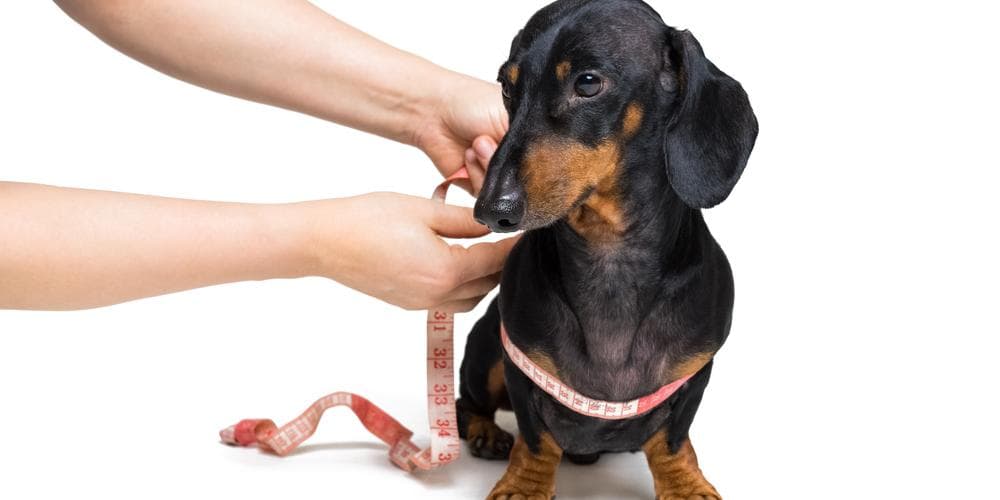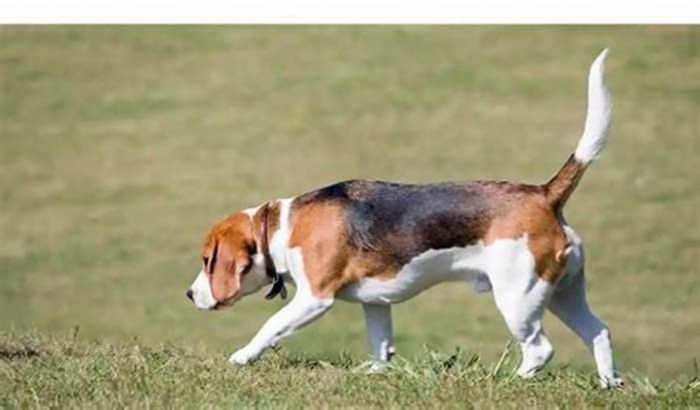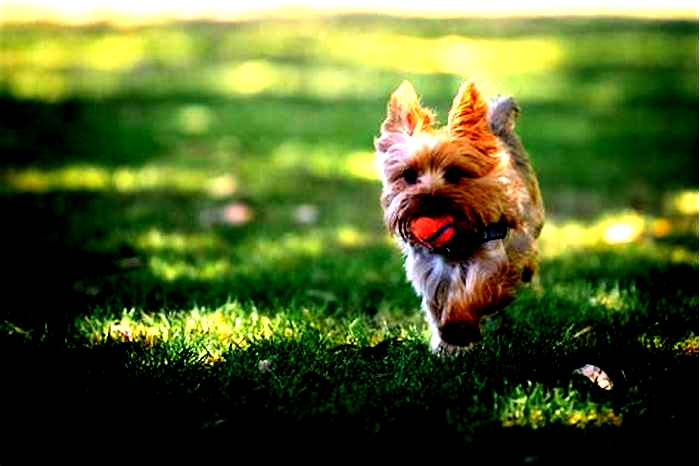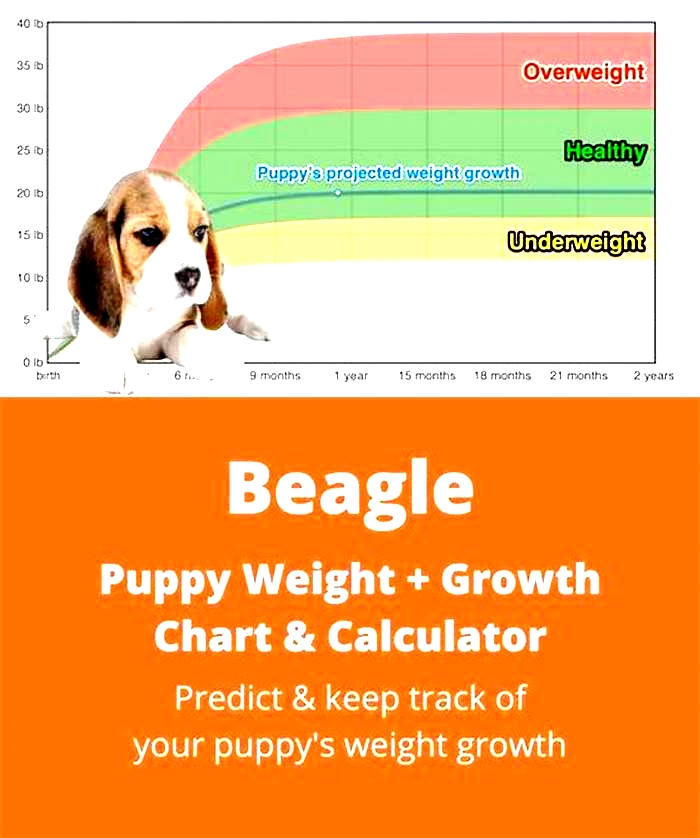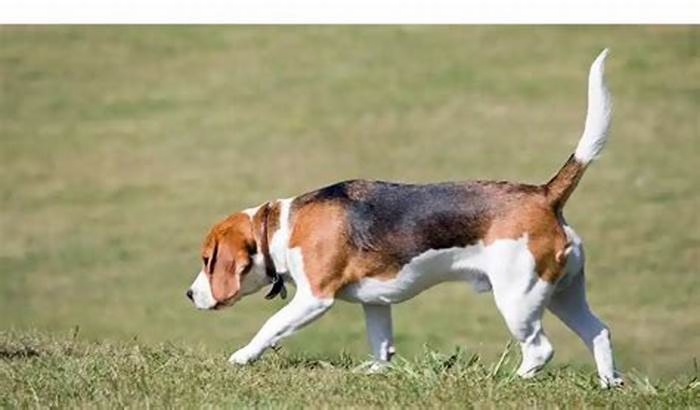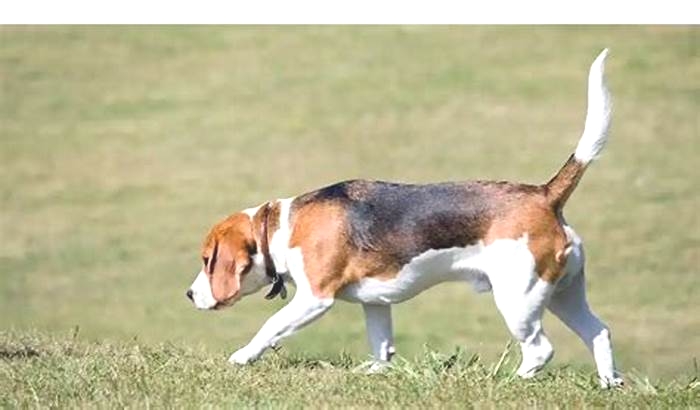Dachshund Obesity The Importance of Regular Vet Checkups
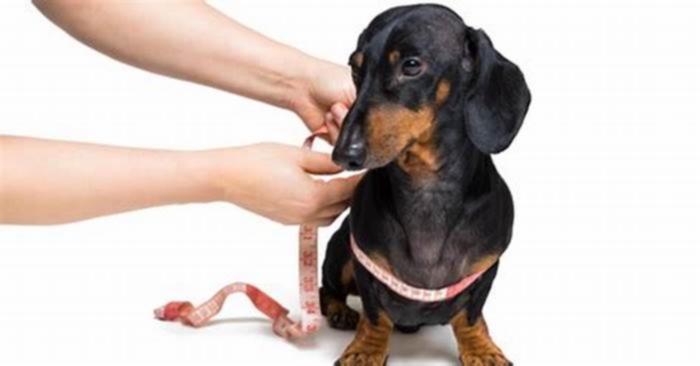
Dachshund Obesity Is a Real Thing, But You Can Change That
How Can YouHelp Your Doxie Lose Weight?
Dachshunds can be so cute with their low-lying flappy ears and long bodies. They can even become more adorable when they become fat. They look more comical, cuddly, and huggable.
However, theres nothing cute about your overweight doxie developing serious health problems. As you know, being overweight and obese poses great health risks. It may lead to heart diseases, metabolic disorders, and maladies related to the respiratory and musculoskeletal systems.
So, if your doxie is overweight, you need to intervene as soon as you can. To get you started, here are some of the best tips you can use to help your Dachshund lose those unwanted pounds.
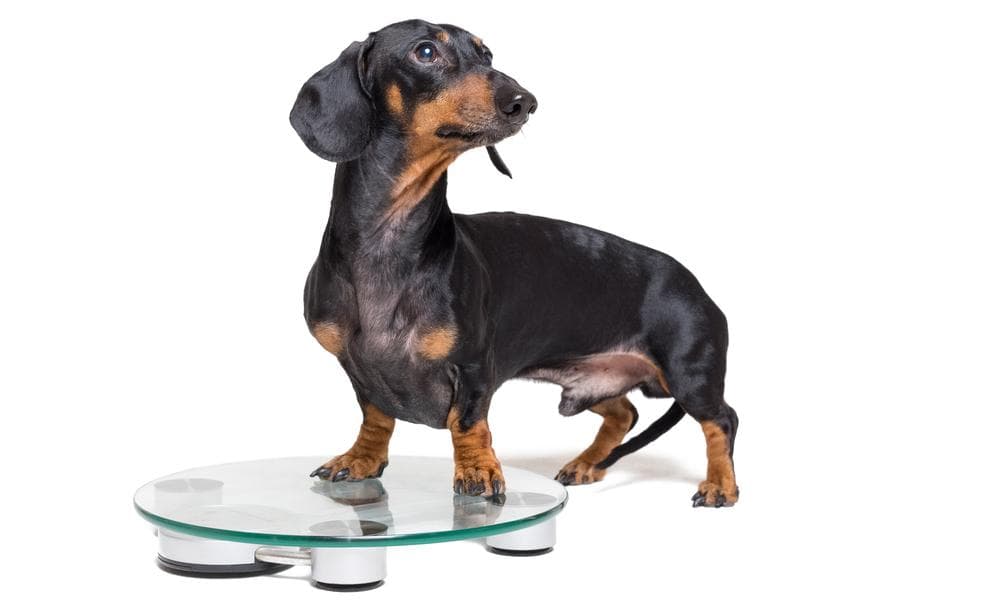
Diet
Obviously, you cant lose weight without talking about diet. Here are some dietary tips to start off your dogs weight loss journey.
- More protein, fewer carbohydrates dogs thrive in a high-protein diet. This helps them build lean muscles and quickly use up excess energy, which may be stored as fats.
- Avoid high-fiber food contrary to popular beliefs, high-fiber food does not help in weight loss. Your doxie wont feel satisfied and will eat more as a result. Not only that but high-fiber food may interfere with nutrient absorption.
- Dont give food scrap while it is tempting to give your adorable doxie leftovers or crumbs from the table, you need to control yourself. It doesnt just encourage bad behavior, but it can contribute to weight gain.
- Feed smaller portions of food instead of giving three large meals, your dog will lose weight faster if you give him frequently, but smaller portions of food. For example, you can divide three big meals into six small meals. Dont give in to the temptation to offer your dog a bowl full of food whenever you leave your home.
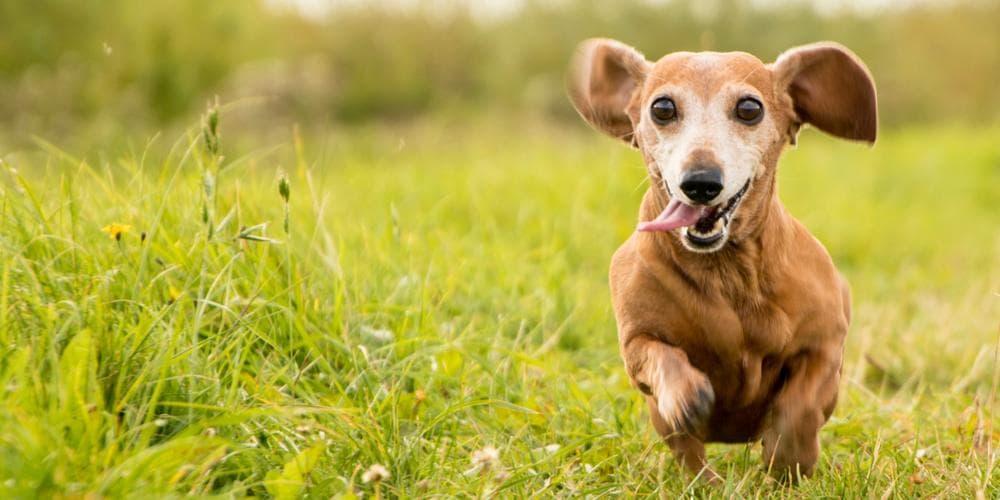
- Reduce your dogs food portion sometimes, the easiest way to lose weight is simply reducing the amount of food you feed your buddy. Now, remember not to drastically lessen your dogs food. As a general rule, reduce your dogs food by five percent for a week or two. After that, if he still doesnt lose weight, then subtract another five percent.
- Schedule your dogs eating habits dont feed your wiener dog at any time of the day. Having a scheduled mealtime will help you monitor your dogs diet. Not only that, but it reinforces discipline too.
- Track everything your dog eats while this may take more work, you will see that it produces results. Write down what you feed your dachshund as well as the amount. Weigh your dogs food and check if it conforms to your weight loss plan.

Exercise
When it comes to losing weight, diet is best coupled with exercise. It doesnt simply help your dog achieve an ideal weight, but it can help your dog become healthier and happier.
There are a lot of great forms of exercise available for your pooch. Walking your dog every morning, jogging with him, hiking, swimming, fetching, and bringing him in the park would surely burn those extra calories. Just be creative to make exercise fun and interesting. With a doxie as your dog, its easier to bring him anywhere since he is relatively small.
Make exercise a habit and schedule it as much as possible. Your dog also thrives in routine. If he routinely gets to exercise at a certain time of the day, it becomes a habit that he can continually do even after achieving his target weight.
Remember that exercise does not have to be done outside. It can be done inside your home. Just keep your pup moving and avoid being inactive. Every calorie burned counts.

Talk To Your Vet
Being overweight, or worse, obese dachshund comes with great health risks. Its a serious problem that you should not ignore. For example, an overweight doxie may easily develop back problems.
If you have an issue with the weight of your pet, it wont hurt calling your vet. He can help you create a weight loss plan, give you advice, and improve your dogs health condition.
Most importantly, read more about weight loss for dogs. The more knowledge and information you gather, the better informed you are in helping your four-legged best friend live a healthier and fuller life.

Obesity in Dachshunds: Prevention and Management
Obesity in dachshunds is a growing concern, with many owners unaware of the health risks associated with overweight pets. This article aims to provide comprehensive information on preventing and managing obesity in dachshunds, ensuring they lead a healthier and happier life.
The Rising Prevalence of Dachshund Obesity
Recent years have seen a spike in obesity rates among dachshunds. Factors contributing to this trend include overfeeding, poor dietary choices, a sedentary lifestyle, and misconceptions about the breeds body condition. Additionally, genetics, hormonal imbalances, and certain medical conditions can predispose dachshunds to obesity.
Consequences of Obesity
Overweight dachshunds face several health risks, including:
- Joint and Orthopedic Problems: Extra weight stresses their joints, bones, and ligaments, potentially leading to conditions like intervertebral disc disease and arthritis.
- Cardiovascular Issues: Obesity can strain the heart, increasing the risk of hypertension and heart failure.
- Reduced Lifespan: Obesity is linked to life-threatening conditions that can significantly reduce a Dachshunds quality of life and lifespan.
Preventing Obesity
Balanced Diet and Portion Control
A nutritious diet tailored to your Dachshunds age, size, and health is vital. Avoid overfeeding and high-calorie foods. Instead, opt for high-quality dog food, ensuring it meets the nutritional needs set by the American Feed Control Officials (AAFCO). Portion control is crucial; follow feeding guidelines and consider using interactive feeding toys to prevent overeating.
Regular Exercise
Dachshunds need daily exercise, regardless of their short legs. Aim for at least 30 minutes to an hour of activity each day, including walks and interactive games. Adjust the intensity and duration based on your Dachshunds age and health.
Healthy Treats
Choose low-calorie, nutritious treats. Limit treat-based rewards and avoid giving table scraps to prevent unnecessary weight gain.
Vet Check-ups and Monitoring
Regular veterinary visits are essential for monitoring your Dachshunds weight and overall health. Your vet can offer tailored dietary and exercise advice and address any underlying health issues.
Management of Obesity
Adult and Senior Feeding Schedules
As your Dachshund ages, their dietary requirements change. Adult Dachshunds should be fed twice a day, while senior dogs may require less food. High-quality dog food with lower fat, protein, and calories is recommended for adults, and senior-specific formulas can aid in digestion and joint health.
Slow Feeding
Using slow-feeder bowls or interactive feeding mats can help your Dachshund eat more slowly, aiding digestion and prolonging satiety.
Regular Weigh-ins
Monitoring your Dachshunds weight regularly is crucial for early detection of weight gain and effective weight management.
Exercise
Maintain a consistent exercise routine. Regular walks, playtime, and mentally stimulating activities can keep your Dachshund active and help manage their weight. Remember, their exercise should be appropriate for their breed and age.
Special Nutritional Considerations
For dachshunds with specific health needs, consider specialized diets or supplements. This includes options for joint health support, allergies and sensitivities, and dental health maintenance.
Behavioral Considerations
Its important to understand and manage behavioral factors that contribute to obesity. This includes establishing a structured feeding routine, avoiding emotional feeding, and providing mental stimulation to prevent overeating.
Celebrating Success and Staying Motivated
Weight management is an ongoing process. Celebrate small achievements and keep a progress journal to track changes in weight, diet, and exercise. Engaging with a community of Dachshund owners can offer support and motivation.
Conclusion
Managing your Dachshunds weight requires a commitment to their diet, exercise, and overall lifestyle. By understanding the causes and consequences of obesity, implementing preventive measures, and maintaining regular veterinary check-ups, you can ensure your Dachshund enjoys a healthy and active life. Remember, a healthy Dachshund is a happy one!
Preventing Obesity in Dachshunds: A Guide to a Healthy Weight and Active Lifestyle
Dachshunds are adorable and lively companions known for their unique body shape and spirited personalities. However, just like any other dog, Dachshunds can be prone to obesity if not properly cared for. In this comprehensive guide, well explore the importance of maintaining a healthy weight in Dachshunds, the causes and risks of obesity, and practical strategies to prevent it. By implementing these tips, you can ensure your Dachshund leads a long, active, and healthy life.
Understanding Dachshunds Weight and Body Condition
Maintaining an optimal weight is crucial for your Dachshunds overall well-being. Every dog breed has a recommended weight range, and Dachshunds are no exception. These short-legged pups should typically weigh between 16 to 32 pounds, depending on their size and build. To assess your Dachshunds weight, you can use the body condition score, which involves observing their physical appearance and palpating their ribs and spine. Its important to be aware of the signs of obesity, such as an absence of a discernible waistline and difficulty feeling the ribs.
Causes and Risks of Obesity in Dachshunds
Obesity in Dachshunds can stem from various factors, including overfeeding, lack of exercise, and genetic predisposition. Its essential to understand the risks associated with obesity, as it can lead to numerous health problems. Overweight Dachshunds are at a higher risk of developing joint issues, such as intervertebral disc disease, hip dysplasia, and arthritis. They may also experience cardiovascular problems, diabetes, and a shortened lifespan. Recognizing these risks motivates us to take proactive measures to prevent obesity in our furry friends.
Creating a Healthy Diet for Your Dachshund
Diet plays a fundamental role in maintaining a healthy weight for your Dachshund. Start by selecting a high-quality dog food that meets their nutritional needs. Look for a balanced diet that includes lean protein, healthy fats, and appropriate levels of carbohydrates. Avoid foods with excessive fillers, artificial additives, and high sugar content. Its crucial to feed your Dachshund the right portion sizes based on their age, weight, and activity level. Consult your veterinarian for specific feeding guidelines and recommended feeding schedules.
When it comes to treats, choose healthy alternatives that are low in calories and provide added nutritional value. Opt for treats specifically formulated for training or consider using small portions of fruits or vegetables as rewards. However, moderation is key, as even healthy treats can contribute to weight gain if overused.
Exercise and Activity for Weight Management
Regular exercise is essential for preventing obesity and keeping your Dachshund physically fit. While their short legs may limit intense physical activities, there are still plenty of exercise options available. Aim for at least 30 minutes to an hour of exercise each day, which can be divided into multiple sessions. Take your Dachshund for brisk walks, engage in play sessions with toys or interactive games, or consider enrolling them in agility training classes. Adjust the intensity and duration of exercise based on your Dachshunds age, physical abilities, and any underlying health conditions. Always prioritize safety and avoid overexertion.
Behavioral Considerations for Preventing Obesity
Behavioral factors play a significant role in weight management for Dachshunds. Establish a structured feeding routine to prevent overeating. Avoid free-feeding, which can lead to excessive calorie intake. Use portion control and measure your Dachshunds food accurately to ensure they receive the appropriate amount. If your Dachshund tends to eat too quickly, consider using puzzle feeders or slow-feed bowls to slow down their eating pace.
Additionally, be mindful of emotional eating or using food as a source of comfort. If your Dachshund exhibits signs of stress, anxiety, or boredom, provide alternative outlets for these emotions, such as interactive toys, mental stimulation activities, or regular playtime. This helps prevent the development of unhealthy eating habits and reduces the likelihood of weight gain.
Regular Vet Check-ups and Monitoring
Regular veterinary check-ups are crucial for monitoring your Dachshunds weight and overall health. Your veterinarian can assess their body condition, provide guidance on weight management, and detect any underlying medical conditions that may contribute to weight gain. They may also recommend specialized diets or tailored weight management plans if necessary. By maintaining a collaborative relationship with your vet, you can ensure your Dachshund receives the best care and support for their specific needs.
Celebrating Success and Staying Motivated
Managing your Dachshunds weight is a journey that requires dedication and commitment. Celebrate milestones and small achievements along the way. Keep a progress journal to track your Dachshunds weight, exercise routine, and dietary changes. This allows you to visually see their progress and provides motivation to keep going. Surround yourself with a supportive community of fellow Dachshund owners who can share experiences, offer advice, and provide encouragement. Together, you can stay motivated and continue prioritizing your Dachshunds health and well-being.
Frequently Asked Questions (FAQs)
How much should I feed my Dachshund to prevent obesity?
When it comes to feeding your Dachshund, its important to follow the recommended portion sizes based on their age, weight, and activity level. Consult with your veterinarian to determine the appropriate amount of food and feeding frequency for your specific Dachshund.
Can I give my Dachshund treats without contributing to weight gain?
Yes, you can give your Dachshund treats, but its essential to choose healthy options and practice moderation. Opt for low-calorie treats specifically designed for dogs, and consider using small portions of fruits or vegetables as occasional rewards.
What exercises are best for weight management in Dachshunds?
Dachshunds benefit from a variety of exercises to maintain a healthy weight. Brisk walks, play sessions, and interactive toys can help keep them active. Additionally, consider agility training or swimming, which can provide low-impact workouts for their joints.
My Dachshund is a picky eater. How can I ensure they get proper nutrition?
If your Dachshund is a picky eater, try offering a variety of high-quality dog foods to find one that appeals to their taste. You can also consult with your veterinarian for recommendations on enhancing the flavor or using food toppers to entice them. Ensuring proper nutrition may involve some trial and error, but its important to find a balance that meets their dietary needs.
Are there any medical conditions that can lead to obesity in Dachshunds?
Yes, certain medical conditions can contribute to weight gain in Dachshunds. Hypothyroidism and Cushings disease are examples of conditions that can affect metabolism and lead to weight gain. If you suspect an underlying medical issue, consult with your veterinarian for proper diagnosis and management.
Should I switch to a weight management dog food for my Dachshund?
Switching to weight management dog food can be beneficial if your Dachshund is overweight. These specialized formulas are designed to provide balanced nutrition while reducing calorie intake. However, its crucial to consult with your veterinarian before making any dietary changes to ensure it aligns with your Dachshunds specific needs.
How often should I weigh my Dachshund to monitor their weight?
Its a good idea to weigh your Dachshund regularly, especially if youre actively managing their weight. Consult with your veterinarian for guidance on how frequently to weigh them. This allows you to track their progress and make any necessary adjustments to their diet and exercise routine.
Can I help my Dachshund lose weight too quickly?
Its important to approach weight loss in Dachshunds gradually and safely. Rapid weight loss can have negative effects on their health. Consult with your veterinarian to establish a realistic weight loss plan and ensure it is done in a controlled manner.
What if my Dachshund doesnt enjoy traditional exercise activities?
If your Dachshund doesnt enjoy typical exercise activities, try finding alternative ways to keep them active. Interactive toys, puzzle feeders, and mental stimulation games can provide physical and mental exercise. Additionally, consult with a professional dog trainer or behaviorist for creative exercise options tailored to your Dachshunds preferences.
How can I maintain my Dachshunds weight once they reach their ideal weight?
Once your Dachshund reaches their ideal weight, its crucial to continue monitoring their food intake, exercise routine, and overall health. Regular check-ups with your veterinarian and maintaining a balanced diet and exercise regimen will help keep them at a healthy weight and prevent future weight gain.
By implementing the strategies outlined in this guide, you can take proactive steps to prevent obesity in your Dachshund. Remember, maintaining a healthy weight is not just about physical appearance but also about ensuring a long and active life for your beloved companion. With a balanced diet, regular exercise, behavioral management, and veterinary guidance, you can provide your Dachshund with the best possible care, promoting their overall health and well-being. Together, lets keep our Dachshunds happy, fit, and thriving for years to come.

